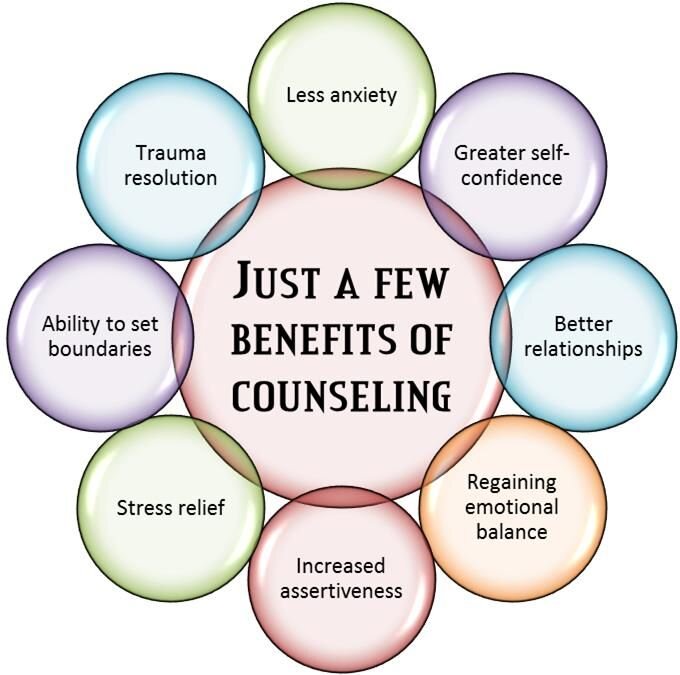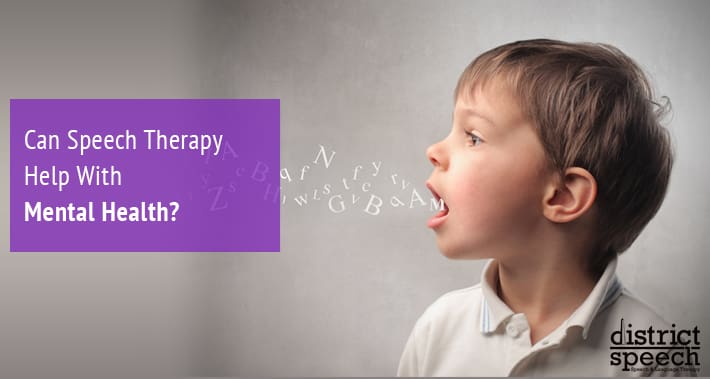A Practical Guide to Starting Cognitive Behavioural Therapy for the First Time
Wiki Article
The Importance of Mental Health: a Deep Study Counseling, Therapy, and Their Benefits
Psychological health greatly forms specific well-being, influencing thoughts, behaviors, and feelings. Therapy and therapy act as vital methods for recovery and personal development. They use structured assistance, helping people navigate life's obstacles. Several stay unaware of the details types of treatment available and their special advantages. Comprehending these facets is crucial for anybody considering expert psychological wellness support. What adheres to may illuminate paths to resilience and satisfaction that several overlook.Understanding Mental Wellness and Its Influence
Mental health and wellness is often overlooked, it plays an essential role in overall well-being and day-to-day performance - Couples Therapy. It incorporates psychological, psychological, and social aspects that affect how people assume, really feel, and behave. A person's mental wellness straight impacts their capacity to take care of tension, connect to others, and make selections. Poor mental wellness can cause various concerns, consisting of anxiousness, clinical depression, and trouble in preserving relationships, all of which can impede personal and expert growth.Furthermore, mental health and wellness has significant ramifications for physical health. Chronic anxiety and untreated psychological conditions can add to various physical conditions, such as cardiovascular disease and deteriorated immune actions. On the other hand, favorable psychological wellness cultivates durability, making it possible for people to manage life's difficulties successfully. Understanding psychological health and wellness's significance is important for fostering encouraging settings that promote psychological health, thus boosting the lifestyle for individuals and communities alikeThe Various Sorts Of Counseling and Therapy
In the domain name of mental wellness, different therapy and therapy types satisfy varied demands. Specific counseling techniques concentrate on personal concerns via one-on-one sessions, while group therapy dynamics foster shared experiences and assistance among participants. Recognizing these techniques is essential for selecting the ideal intervention for various difficulties.Individual Therapy Strategies
Numerous individual counseling methods exist, each developed to attend to particular mental wellness concerns and satisfy differing customer demands. Cognitive Behavior Modification (CBT) focuses on identifying and transforming negative idea patterns, while Psychodynamic Therapy checks out subconscious procedures and past experiences. Humanistic Treatment stresses personal growth and self-actualization, promoting an encouraging environment. Social Treatment (IPT) targets connection concerns and interaction patterns to boost emotional health. In addition, Approval and Commitment Treatment (ACT) urges customers to approve their ideas and feelings while dedicating to individual worths. Each strategy uses unique methods and viewpoints, permitting professionals to tailor their approaches to the individual, therefore improving the healing experience and advertising psychological health and wellness recovery.Team Treatment Characteristics
Group therapy dynamics encompass different restorative techniques that utilize the power of shared experiences and interpersonal relationships. This form of treatment commonly consists of diverse groups, fostering a safe setting for participants to share ideas and feelings. Trick types of team treatment include support system, which supply emotional assistance; process-oriented teams, concentrating on social interactions; and psychoeducational teams, targeted at giving knowledge regarding mental health problems. The characteristics within these teams can boost self-awareness, as members usually assess their behaviors in connection with others. In addition, team therapy cultivates a feeling of belonging, decreasing sensations of isolation. Through shared stories and collective analytic, participants can develop coping approaches and gain understandings, eventually adding to specific development and recovery.The Duty of Therapy in Mental Health And Wellness
Therapy plays an essential role in mental wellness by offering various methods tailored to specific requirements. These techniques give specialist assistance that can lead to significant improvements in psychological wellness. Comprehending the different sorts of counseling can help individuals make notified choices regarding their mental healthcare.
Sorts Of Therapy Approaches
While various therapy strategies exist, each offers special approaches and insights right into mental health treatment - Cognitive Behavioural Therapy. Among one of the most noticeable are cognitive-behavioral therapy (CBT), which focuses on changing unfavorable thought patterns; psychodynamic therapy, which explores unconscious processes and childhood experiences; and humanistic techniques, stressing individual growth and self-actualization. In addition, solution-focused brief therapy focuses on discovering options in the here and now as opposed to diving right into troubles. Group treatment cultivates neighborhood and shared experiences, while family treatment addresses relational dynamics within domestic frameworks. Each technique deals with different demands, lining up with individual choices, problems, and restorative goals. Comprehending these strategies helps clients make informed choices regarding their psychological health and wellness trip and promotes efficient therapy tailored to their unique circumstancesBenefits of Expert Advice
Many individuals gain from professional guidance in handling their psychological health difficulties. Therapy provides a safe space for clients to discover their ideas and feelings without judgment. This therapeutic atmosphere cultivates self-awareness, permitting people to recognize patterns in their actions and develop healthier coping strategies. Specialist support likewise gives access to evidence-based methods that can minimize symptoms of stress and anxiety, depression, and other mental health concerns. In addition, therapists can help in setting sensible objectives and supply assistance in achieving them, boosting overall well-being. The collaborative relationship in between counselor and client is vital, as it advertises responsibility and encourages individual growth. Eventually, expert assistance plays an essential role in guiding mental wellness journeys, leading to enhanced emotional strength and life satisfaction.Benefits of Therapy: Healing and Growth

How to Choose the Right Therapist or Counselor
How can one navigate the typically frustrating process of choosing the appropriate specialist or counselor? Recognizing personal demands is vital; individuals need to consider their certain problems, whether relationship, depression, or stress and anxiety obstacles. It is beneficial to study numerous healing strategies, such as cognitive-behavioral treatment or psychodynamic therapy, to locate an appropriate match.Next, prospective clients need to seek references from relied on sources or make use of online directories. It is essential to evaluate specialists' qualifications, including their education and learning, licensing, and locations of field of expertise. Arranging initial examinations can assist assess compatibility, allowing individuals to analyze communication designs and individual comfort.Finally, logistical aspects, such as place, accessibility, and charges, should also be considered. By attentively considering these aspects, one can make a notified decision, inevitably promoting a restorative relationship that sustains mental health and individual growth.Getting Rid Of Preconception: Accepting Mental Health Support
While social perspectives towards mental health and wellness have actually evolved, stigma still offers a significant barrier for many looking for assistance. This stigma typically materializes as misunderstandings bordering mental disease, leading people to feel shame or anxiety concerning their battles. Lots of people wait to pursue therapy or treatment as a result of fears concerning being next evaluated or labeled. Overcoming this preconception is fundamental for fostering a helpful environment where people can honestly review their psychological health needs.Communities and companies play a crucial duty in this change by advertising recognition and education and learning concerning psychological health issues. Initiatives that highlight personal stories can humanize these experiences, motivating others to seek help without fear. As acceptance my sources grows, individuals may really feel more encouraged to welcome psychological health assistance, identifying it as a crucial element of general wellness. By taking apart preconception, society can grow a society of understanding, concern, and aggressive psychological healthcare.Techniques for Preserving Psychological Well-Being Outside of Therapy
Therapy supplies valuable assistance, preserving psychological wellness outside of sessions is equally vital. People can execute several strategies to maintain their mental health. Regular exercise plays a necessary role, as workout promotes the release of endorphins, which enhance state of mind. Furthermore, a balanced diet regimen abundant in nutrients can substantially influence psychological security and power levels.Practicing mindfulness and meditation helps people manage tension and create higher self-awareness. Establishing a regular sleep regimen is additionally basic, as high quality rest is essential for cognitive function and emotional regulation.Engaging in social activities promotes link and reduces sensations of isolation. Seeking interests or hobbies can offer a creative outlet and boost self-worth. Setting realistic objectives and practicing self-compassion enables people to cultivate resilience. By incorporating these approaches right into day-to-day live, individuals can effectively sustain their psychological health beyond treatment sessions.Regularly Asked Questions

Exactly How Can I Tell if I Required Therapy?

Figuring out the need for treatment commonly involves acknowledging relentless sensations of despair, anxiousness, or overwhelming stress. If day-to-day functioning ends up being challenging or coping devices fail, looking for professional assistance may be a useful progression.
What Should I Expect in My Very First Treatment Session?
In the first therapy session, people can anticipate an introduction, discussion of their factors for looking for help, and an introduction of the therapist's approach, producing a foundation for future discussions and developing comfort in the restorative area.Are Online Therapy Procedure as Effective as In-Person Ones?
Research suggests that online therapy sessions can be as reliable as in-person ones. Aspects such as the specialist's qualifications, customer interaction, and the therapeutic relationship significantly affect results, no matter of the tool utilized.Can Therapy Assist With Relationship Concerns?
Therapy can assist people in addressing partnership problems by giving devices for communication, recognizing emotions, and solving problems. Couples Therapy. It promotes healthier dynamics and motivates individual growth, inevitably promoting stronger, much more satisfying links between companionsThe Length Of Time Does Therapy Typically Last?
Treatment period varies significantly based upon private needs and goals. Typically, sessions might last from a few weeks to several months, with some people taking part in continuous therapy to deal with long-lasting issues and personal development. Cognitive Behavioral Treatment (CBT) concentrates on identifying and transforming adverse thought patterns, while Psychodynamic Treatment explores past experiences and subconscious procedures. Key kinds of group treatment consist of assistance teams, which provide emotional assistance; process-oriented groups, concentrating on social communications; and psychoeducational teams, intended at presenting knowledge about mental wellness concerns. Among the most prominent are cognitive-behavioral treatment (CBT), which concentrates on altering negative thought patterns; psychodynamic treatment, which explores unconscious processes and childhood experiences; and humanistic techniques, emphasizing individual click to read development and self-actualization. Group therapy promotes area and shared experiences, while family treatment addresses relational dynamics within domestic frameworks. It is useful to study different healing approaches, such as cognitive-behavioral therapy or psychodynamic therapy, to discover an appropriate match.Next, prospective customers must seek recommendations from relied on resources or utilize online directory sites.Report this wiki page